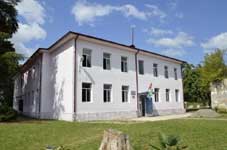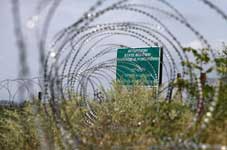
Russian occupation forces ban education in Georgian in Gali district
By Khatia Bzhalava
Thursday, September 16
Per the decision of the de facto Abkhaz Education Ministry, students living in Russian-occupied Gali District, which is mostly inhabited by ethnic Georgians, have to receive secondary education in Russian. Teaching in the Russian language was introduced in stages and only 11th graders had been allowed in recent years to study in Georgian in 10 schools of Gali. However, according to the Education Ministry’s decision, now the students of all grades will study in Russian, and Georgian will be taught as a foreign language.
The Georgian State Minister for Reconciliation and Civic Equality is concerned over the occupation regime’s decision and stated that this problem would be discussed at the upcoming Geneva International Discussions on October 12-13.
According to the statement published by the state ministry, despite the appeals from the Georgian authorities and the international community, the fundamental rights of the people living in the occupied regions, especially in Gali and Akhalgori districts, including the right to education in their native language, continue to be grossly violated.
“Such unlawful acts demonstrate the ethnic discrimination and Russification policy of the Russian occupation regime, aimed to the destruction of the Georgian trace and the full assimilation of the population,” reads the statement of the ministry.
The Georgian authorities promise to spare no effort and use all the levers to ensure the access of education in the native language in the occupied regions and protect other fundamental rights.
Regarding the gross violation of children’s rights, the Georgian side is actively communicating with international partners, including co-chairs of the Geneva International Discussions and the European Union Monitoring Mission in Georgia.
Occupation forces started banning education in the Georgian language in 2015. Primarily, Georgian language and literature were taught as a foreign language in the primary classes, and hours dedicated to it was reduced. Secondary students were receiving education in the Georgian language due to the shortage of Russian-speaking staff and the lack of funding, however, Georgian history and geography classes were forbidden and were replaced with the history and geography of Abkhazia.


